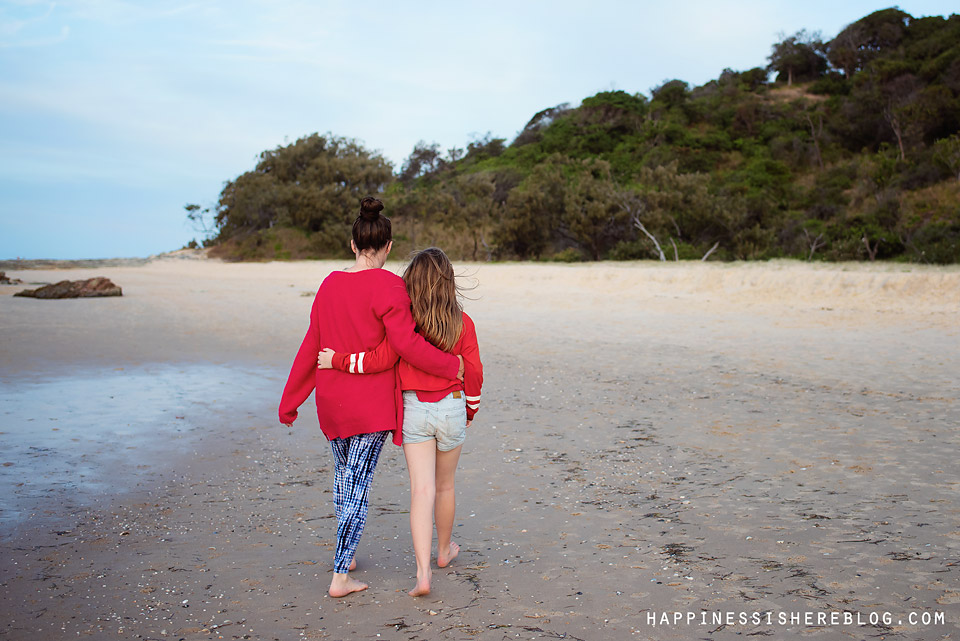
Curiosity Is One of Your Greatest Parenting Tools
As parents, we often think we know best. We hear a sibling fight and we think we know exactly who started it, and who is in the wrong. We find a huge mess and know just who created it. We can fall into the trap of acting as the judge and jury, and accusing people of things before we’ve even heard the full story!
I think we can all remember times as children when we had the same thing happen to us too. I bet you remember how very unfair it felt, and likely how it didn’t resolve anything but just made you furious.
The thing is, our children don’t need a judge. They just need a partner. Someone on their side, who they can come to with any problem.
How do we do this? With curiosity. It’s really simple, but I think some of the best parenting advice is to simply be curious.
When your children don’t listen, be curious.
What are they doing that is more important right now? Have they really heard me? Have I connected with them before requesting something? Do they disagree with what I’m saying? Do they have an idea about how we can do this differently? Can we negotiate about when this needs to be done?
When your child lies, be curious.
Why did they make that choice? Do they feel safe to tell the truth? Have I reacted badly in the past? Did they disagree with my choice? Do they feel comfortable disagreeing with me? Is our home/family a safe place to tell the truth? How can we repair our connection?
When your child makes a mistake, be curious.
I wonder what happened here? I wonder why they made this choice? What were they trying to do? How were they feeling? How can I help them make this right?
When your children fight, be curious.
Why are they angry/upset/frustrated? What happened before this? What does each person want to happen? How can I support them to work this out? What do they need from me?
When your child disagrees, be curious.
I wonder what this says about their values/beliefs? Could this be an opportunity to get to know them more? Can I make space for them to have their own point of view? How can I facilitate a conversation where we both get a say?
When your child is upset/angry/crying, be curious.
What does this tell me about how important this is to them? I wonder how they have interpreted this situation that has caused such strong feelings? How can I help them? What do they need from me? What can I learn about them right now?
Ask yourself some questions first. Instead of looking for someone to blame or punish, be curious. And then approach your child with curiosity too. Show them that you’re here to understand and support, rather than accuse.
Instead of “No one is listening to me!!!!” try “I wonder if you’ve heard me?”
Instead of nagging, try “It seems like this is hard for you, how can we make it easier? Is there a time you could do it that works for both of us?”
Instead of “Who made all this mess again!” try “I’m really curious to hear how that happened? What was your plan? Do you need some help knowing how to fix it?”
Instead of “I’m so disappointed in you for lying” try “It’s really important to me that you feel safe to tell me if you’ve made a mistake, and I’d love to learn how I can make sure you feel comfortable in the future. Could you tell me if you think of any ways I can help?”
Instead of “No, you’re wrong!” try “I love hearing your thoughts, I’m really interested to hear why you feel that way?”
Instead of “Stop fighting!” try “I can see you’re both upset here. Will you help me understand what’s happened? How can I help you?”
Instead of “You’re always on that screen!” try “I can see you’re really enjoying that game, can you tell me what you love about it?”
Can you imagine being a child and being approached with curiosity instead of accusation? How would it feel to have someone who just wanted to understand instead of blame? To be given the benefit of the doubt? To feel that you have someone wanting to help and support you? This simple change can make a huge difference.
Be curious.









